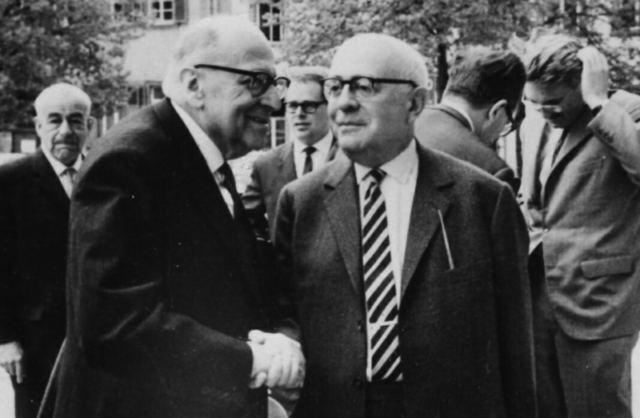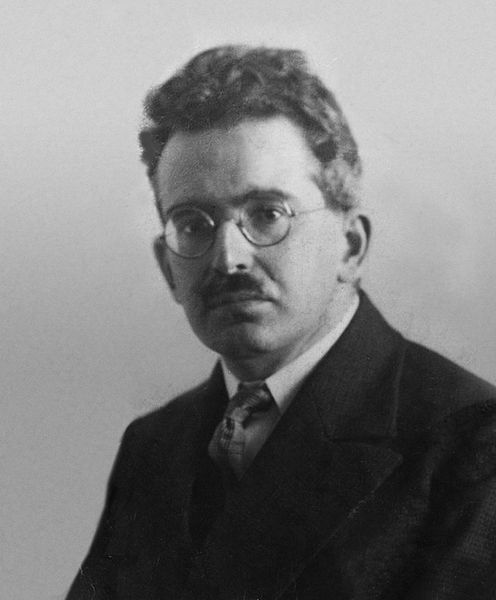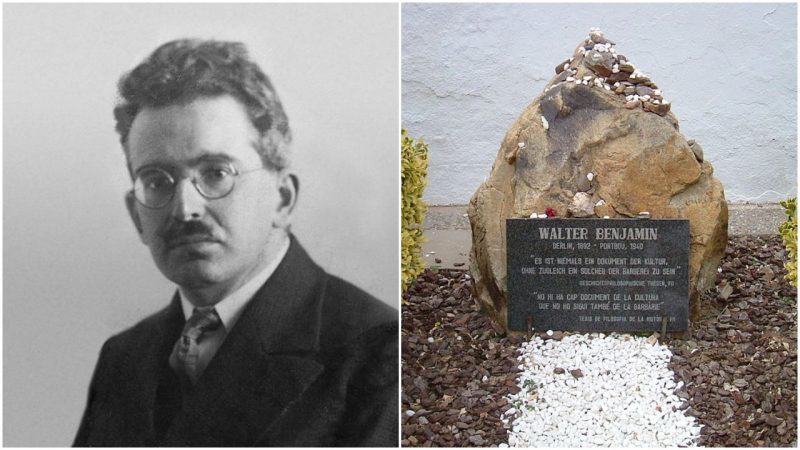Walter Benjamin was one of the major figures of the 20th-century philosophy and cultural theory.
He was an avid Marxist who associated with prominent figures of the Frankfurt school of philosophy, such as Max Horkheimer and Theodor Adorno. He was also a prominent literary critic; his essays explore the works of Johann Wolfgang Goethe, Charles Baudelaire, Franz Kafka, Marcel Proust, and many others.

Although Benjamin’s work received only moderate attention during his life, he posthumously received universal acclaim and became an inspiration to countless philosophers, writers, and cultural critics. Many of the people responsible for revealing his thoughts to the general public were his friends, including the German political theorist Hannah Arendt, the prominent German playwright Bertolt Brecht, and French philosopher Georges Bataille.
Benjamin had the misfortune of being a German Jew at a time when the Nazi ideology started targeting Jews and spreading vicious anti-Semitic propaganda. Furthermore, Benjamin was a highly progressive thinker who openly opposed the Nazi ideology, and because of this, he was marked as an ideological enemy of the state.

Like many of his contemporaries, who were dissatisfied with fascist ideologies spreading across Europe, Benjamin wanted to flee to the United States. He escaped Germany in 1932 when Adolf Hitler assumed the position of Chancellor of Germany and temporarily settled on the Spanish island of Ibiza.
However, he soon relocated to Paris, as he considered Paris to be safe from the hands of the Nazis. In Paris, he successfully collaborated with many writers and philosophers, but he frequently suffered from depressive episodes. He claimed that this depression was a result of an ideological horror which was sucking up his homeland. He considered committing suicide several times but was stopped by his friends.

He managed to remain safe in France until June 13th, 1940, when the Wehrmacht forces defeated the French defense. On that same day, he fled to the French town of Lourdes with his sister, and, the next day, officers of the Gestapo entered Paris and carried a warrant for his arrest.
He was anxious and scared for his life, but he managed to devise a plan through which he and his sister would flee to the United States through the neutral country of Portugal. He managed to cross the French-Spanish border and decided to stay for a while in the Spanish coastal town in Portbou. Since the Francoist Spain remained neutral up to that point of the war, Benjamin joined a Jewish refugee group and thought that he could travel through Spain safely.

However, the Spanish government ordered that all Jewish refugees must be returned to France. At that point, Benjamin was staying at a hotel named Hotel de Francia in Portbou. He saw the streets of the town teeming with policemen and realized that the authorities would come and arrest him.
He committed suicide by swallowing a handful of morphine tablets on the night of 25th September 1940, after he realized that all his hopes of reaching the United States were destroyed. Like the exiles of many other unfortunate souls who opposed the Nazi regime, his long exile ended in hopeless disillusionment and tragic death.
